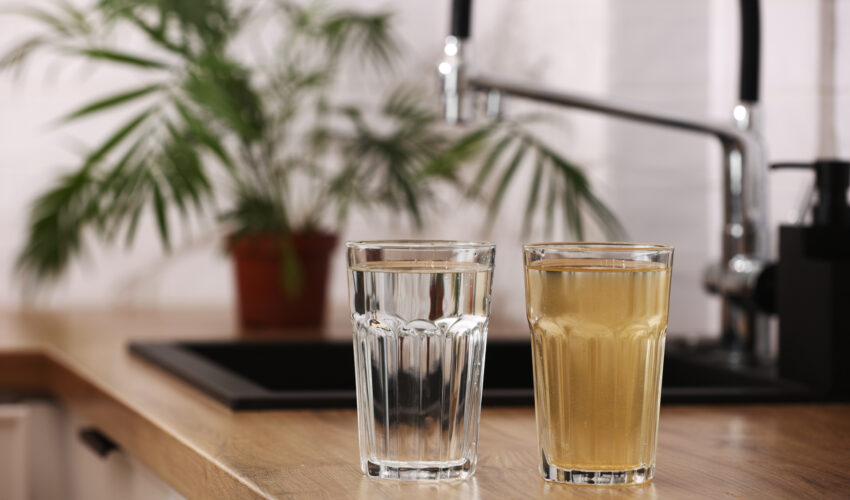Clean, safe water is essential for our daily lives. But even if your water looks clear, it may not be as pure as it seems. Contaminants lurking in your water supply can affect the taste and quality of the water you use for drinking, cooking, and bathing. Some may even cause health problems. Our goal isn’t to scare you about the effects of these contaminants, but rather keep you informed and in the position to make the right decision for your home. It’s crucial to understand the most common types of contaminants and what to do to effectively remove them.
Common Water Contaminants
- Chlorine: Used as a disinfectant in municipal water supplies, chlorine helps kill bacteria and viruses. However, during the treatment process, it may combine with organic matter found in the water and create what’s known as disinfection by-products (DBPs) which can cause a variety of health problems after long-term exposure. Chlorine can also cause your water to have an unpleasant taste and odor, and is generally not good for human consumption. Additionally, high chlorine levels can leave you with irritated skin.
- Lead: This metal can leach into water from old pipes and plumbing fixtures. Even at low levels lead exposure can cause serious health problems, including heart disease and brain damage. Children are particularly vulnerable, potentially facing developmental delays and learning difficulties.
- Pesticides: Runoff from agricultural areas and lawns can introduce pesticides into the groundwater. Depending on the amount and type of pesticides, these chemicals can harm your health by damaging your nervous system and increasing your risk of cancer.
- Minerals: Calcium and magnesium are often found in hard water. While they’re not harmful to your health, they can leave scale buildup in your hair and skin, pipes, fixtures and appliances which can potentially damage your dishwashers, washing machines, and water heaters. These minerals may also have an unpleasant smell or taste.
To get a better idea of what specific contaminants lie in your water supply, consider buying a water test.
What Contaminants Does Your Water Softener Remove?
Water softeners are specifically designed to address hard water issues by removing calcium and magnesium minerals. Here in San Antonio, we recommend ion-exchange water softeners to handle your hard water problems. By using a process called ion exchange, these water softeners replace calcium and magnesium ions with sodium or potassium ions. This makes the water feel softer, increases the lifespan of your appliances, and won’t leave an ugly scale behind.
What Does Your Water Filter Remove?
The contaminants your water filter can remove depend on the type of filter you use. Here’s a breakdown of common filters and their capabilities:
- Reverse Osmosis (RO) Filters: RO systems, or point-of-use filters provide filtered water to one or two fixtures in your home. Along with removing minerals found in hard water, like calcium and magnesium, they also remove lead, chlorine, bacteria, and pesticides. Although they’re great at removing a variety of contaminants, RO systems can damage metal plumbing and can take up a lot of space, making them inadequate for treating all the water that comes through your house.
- Whole House Filters: These filters are designed to remove contaminants from municipal water supplies, including chlorine, chloramines, pharmaceuticals, heavy metals, and pesticides. Commonly considered the most cost-effective water treatment solution, these filters treat your water at the point of entry, leaving your whole house with clean water. Although there are a few different types, we recommend activated carbon filters which are ideal for the San Antonio area. To remove fluoride, found in San Antonio’s public water supply, you’ll usually need a separate filter.
- Well Water Filters: Though the filters above can handle a variety of common contaminants, if you rely on a well system, you need a more specialized filter. These filters typically remove debris, sand, heavy metals, sulfur, and other contaminants that are commonly found in well water. By prefiltering your water you’ll be able to address your water supply’s treatment needs.
Whether you’re dealing with hard water minerals, harmful chemicals, or specific well water contaminants, selecting the right solution is key. Fortunately, North East Air Conditioning, Heating & Plumbing is here to help. We’ll work with you to find and design the right water treatment system for your family’s needs. Just visit our website to set up an appointment with one of our experienced technicians.


